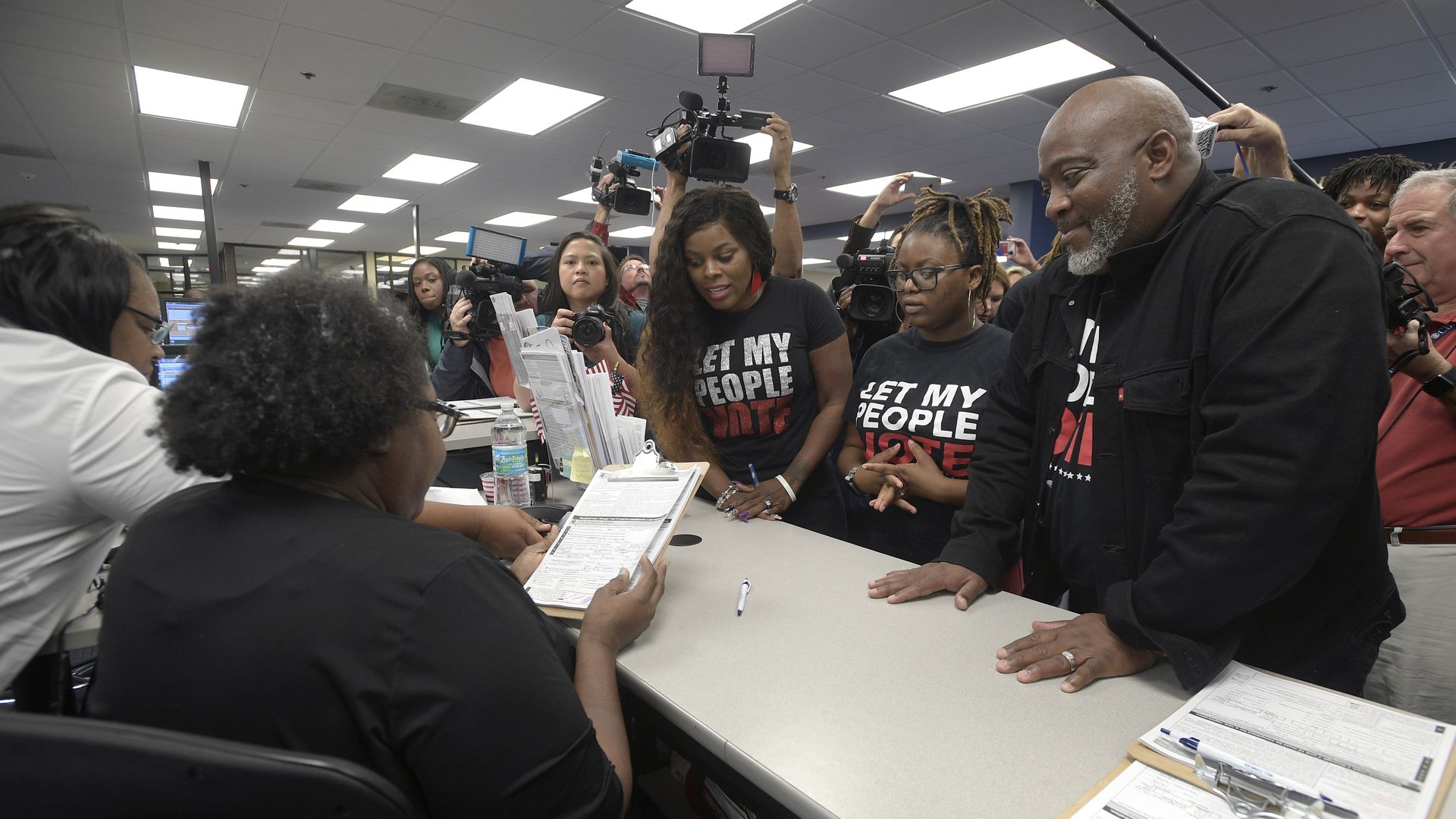
Looks like Florida government is pulling extra strings to prevent former felons from voting in the next presidential election.
Many were hopeful when it was announced that former felons had their voting rights restored after Florida’s election last November. But Florida Gov. Ron DeSantis (R) signed legislation on Friday that requires people with felony convictions to pay off all of their outstanding fines and fees before they can vote again. Critics of the ruling say it’s a strategic move to prevent the expansion of voting rights in the state.
The amendment repealed Florida’s Jim Crow-era lifetime voting ban for people with felony convictions allowing them to vote once they “complete all terms of their sentence including parole or probation.” The change was estimated to affect up to 1.4 million people, except for those charged with murder or sexual offenses.
The amendment officially went into effect in January and Floridians saw a record number of former felons registering to vote. But Republican lawmakers argued that the formerly incarcerated should be required to repay all financial obligations ordered as part of that sentence before they could vote.
DeSantis sent a letter to Florida Secretary of State Laurel Lee on Friday calling out things the amendment did not address.
“Curiously, the amendment did not address the restoration of other civil rights, such as the right to hold public office and to serve on a jury,” the governor wrote, adding that he would consider doing so for nonviolent offenders.
DeSantis went on to say he thought it was a “mistake” that the amendment restored voting rights to those convicted of some violence offenses, including attempted murder and kidnapping.
“As I consider options for restoration of civil rights to non-violent offenders, my administration will execute this legislation to ensure the restoration of voting rights,” he wrote.
Despite the harshness of the that DeSantis signed, people are allowed to petition a judge to waive their outstanding fines and fees in efforts of getting their voting rights restored.
After DeSantis signed the bill, civil rights groups from American Civil Liberties Union, the NAACP Legal Defense Fund, the Brennan Center for Justice and the Campaign Legal Center likened it to a poll tax and filed two federal lawsuits on behalf of people with felony convictions. The lawsuit accuses the new law of violating the 1st, 14th, 15th and 24th amendments of the U.S. Constitution, which prohibits poll taxes.
“If not enjoined, the law will have a massive disenfranchising effect, and result in sustained, and likely permanent, disenfranchisement for individuals without means,” lawyers wrote in one suit. “It creates two classes of returning citizens: those who are wealthy enough to vote and those who cannot afford to. This disenfranchisement will be borne disproportionately by low-income individuals and racial minorities, due to longstanding and well-documented racial gaps in poverty and employment.”
The Florida Rights Restoration Coalition plans to help people vote despite the new restrictions. The group announced a donation-based fund to assist people with repaying fines and fees so they can vote.
“We are committed to operating under the law to register every one of the estimated 840,000 immediately eligible returning citizens in Florida. For the remaining 500,000, we will utilize the provisions of the legislation and generosity of our allies and extended FRRC family to provide relief for those facing financial barriers in completing their sentences,” said Desmond Meade, the group’s executive director.
Press play below for more on this story.


